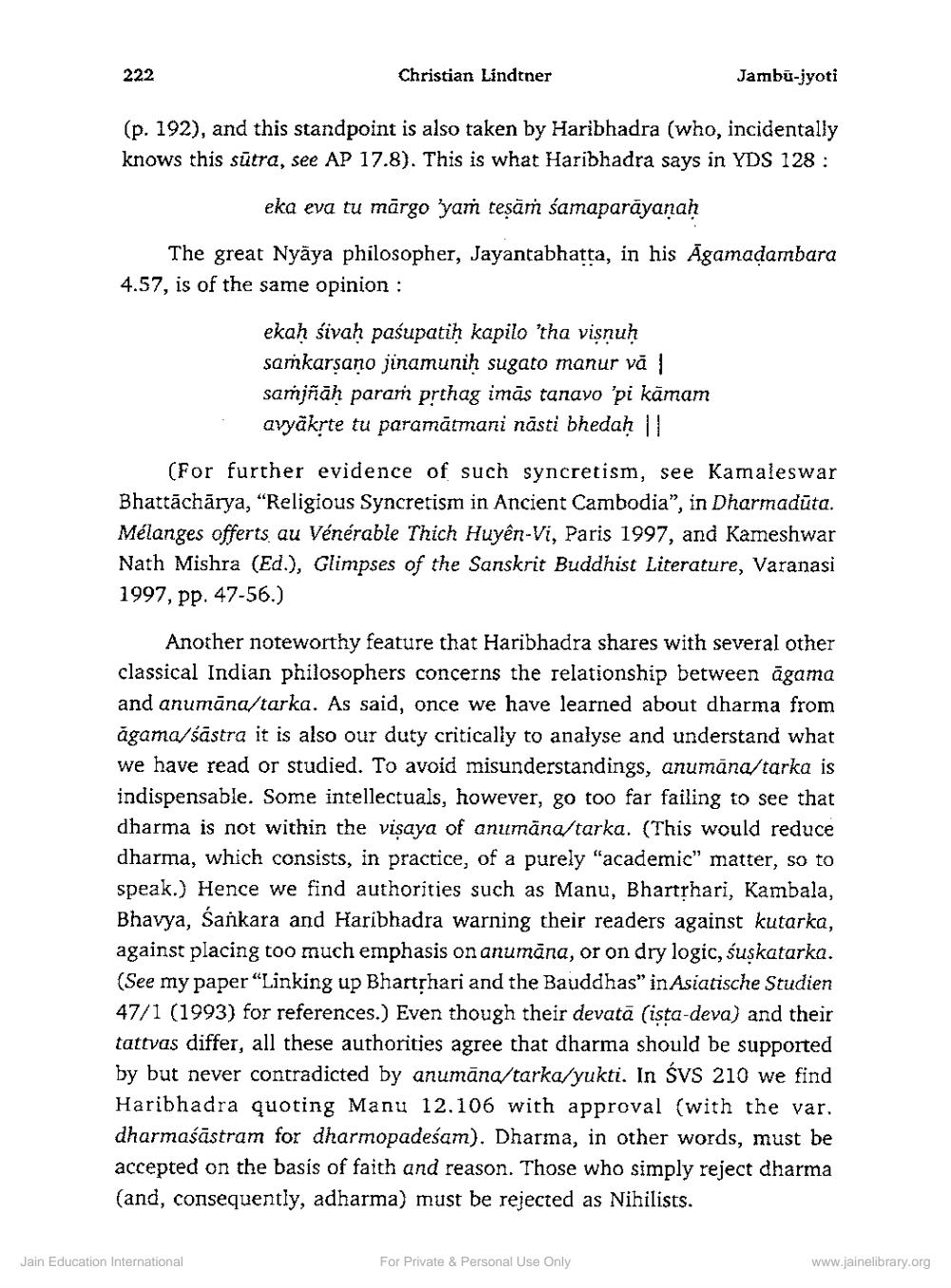________________
222
Christian Lindtner
Jambū-jyoti
(p. 192), and this standpoint is also taken by Haribhadra (who, incidentally knows this sūtra, see AP 17.8). This is what Haribhadra says in YDS 128 :
eka eva tu margo 'yam tesam samaparāyanah
The great Nyäya philosopher, Jayantabhatta, in his Agamadambara 4.57, is of the same opinion :
ekah śivah pasupatih kapilo 'tha vişnuh samkarsano jinamunih sugato manur vă ! samjñāh param prthag imās tanavo 'pi kāmam avyäkrte tu paramātmani nästi bhedah ||
(For further evidence of such syncretism, see Kamaleswar Bhattāchārya, “Religious Syncretism in Ancient Cambodia”, in Dharmadūta. Mélanges offerts au Vénérable Thich Huyên-Vi, Paris 1997, and Kameshwar Nath Mishra (Ed.), Glimpses of the Sanskrit Buddhist Literature, Varanasi 1997, pp. 47-56.)
Another noteworthy feature that Haribhadra shares with several other classical Indian philosophers concerns the relationship between āgama and anumāna/tarka. As said, once we have learned about dharma from agama/śāstra it is also our duty critically to analyse and understand what we have read or studied. To avoid misunderstandings, anumāna/tarka is indispensable. Some intellectuals, however, go too far failing to see that dharma is not within the visaya of anumang/tarka. (This would reduce dharma, which consists, in practice, of a purely "academic" matter, so to speak.) Hence we find authorities such as Manu, Bhartrhari, Kambala, Bhavya, Sankara and Haribhadra warning their readers against kutarka against placing too much emphasis on anumana, or on dry logic, suskatarka. (See my paper "Linking up Bhartshari and the Bauddhas” in Asiatische Studien 47/1 (1993) for references.) Even though their devatā (ista-deva) and their tattvas differ, all these authorities agree that dharma should be supported by but never contradicted by anumāna/tarka/yukti. In ŚVS 210 we find Haribhadra quoting Manu 12.106 with approval (with the var. dharmaśāstram for dharmopadeśam). Dharma, in other words, must be accepted on the basis of faith and reason. Those who simply reject dharma (and, consequently, adharma) must be rejected as Nihilists.
Jain Education International
For Private & Personal Use Only
www.jainelibrary.org




